Lightning Safety Reminder!
Plus sign up for my Live Webinar on Boondocking Without a Generator that starts at 3:00pm Eastern Time Today...
Dear Readers,
Since we had a big thunder and lightning storm yesterday, it’s a good time to remind you all about lightning dangers.
This came in last year from the iRV2.com forums addressed to me. It’s a great reminder of the power of lightning, and why you should disconnect your RV from shore power if there’s an electrical storm coming.
Dear Mike,
So, last week a huge bolt of lightning hit a utility pole about 100 feet from my camper. It completely destroyed the pole (literally cut it in half). Well, apparently it followed the electric or cable wire into my camper. And yes, I had one of those surge protectors plugged into my electric source at the plug, and my camper was plugged into it. Apparently it didn’t help.
After the lightning strike, several things don’t work. My cable TV distribution went out. The cable running to my camper is still good, and so are my components (TV, modem, etc.). I can stick the cable wire through the window and hook my TV to it and it works. But if I hook the cable up on the side of the camper where you are supposed to, the cable outlets in the camper don’t work. This is so strange to me. I assumed the cable connections inside my camper were just direct wires and a splitter. Is there an electrical component involved in the cable TV outlets in my camper?
My refrigerator stopped working. Obviously, this is the most important problem. What really kills me about this is that my fridge is supposed to work on electric OR on gas. Neither one will work now.
The lights in my camper work but the battery no longer charges. Let me explain. I leave my camper plugged in all the time. However, the overhead lights are all 12 volts. So when things work properly, I suppose there is some kind of battery charger that used the 110 electric to charge the battery and then my lights ran off the battery. So my lights worked several days after the lightning strike but then slowly went dead. I hooked a 12-volt battery charger up overnight and my lights work again but, of course, will go dead again now.
I did have one fuse in my 12-volt fuse box that blew. I replaced it but it didn’t fix any of the above problems. I’ve checked all fuses.
None of my five 110 circuit breakers tripped. I have flipped them off and back on just to be sure.
I don’t know if my fridge worked off my battery the way my lights do. But if so, I don’t understand why it won’t work when I recharge the battery using my battery charger.
My 110-volt plugs work. Everything else seems to work.
My big deal is my fridge, then the fact that my battery won’t stay charged to run my overhead lights, then there are my cable outlets.
Does anyone have any idea what might be going on? I seriously doubt I can fix it, but perhaps there is a fuse I don’t know about or a reset or something???? I have a 23-foot Highland Ridge trailer. It is a 2019 model.
Any help or insight would be appreciated Sooooo much! —an iRV2.com reader
Dear iRV2er,
Basically, everything electrical in your RV has probably been damaged, and even the few things that are still working will likely fail soon. Now is the time to test EVERYTHING, and replace as much of it as possible. Lightning is a cruel master, and it goes wherever it wants to go, damaging everything in its path.
I’ll be writing a full article about this next week. But off the cuff, I do know that a typical cloud-to-earth lightning strike has around 1 billion joules of energy. This is 1 billion watts of power for 1 second, or 277 kWh per lightning strike. That’s enough energy to power your entire house for weeks, in just a single lightning strike lasting microseconds.
How powerful is a lightning strike?
Considering that an EMS Surge Protector has maybe 3,600 joules of MOV protection, it’s obvious that 1,000,000,000 joules of energy from a direct hit on your shore power wiring during an electrical storm will destroy any Surge Protector, and probably everything electrical in the RV. And don’t forget the over-pressure damage to the tires and welded wheel bearing from the lightning strike passing through the tires.
Protect your RV during an electrical storm
The best way to protect your RV from lightning damage is to unplug from shore power during an electrical storm and run from batteries.
I did a study last year which suggests the possibility of insulating pads under the jacks could possibly reduce lightning damage from a nearby ground strike that creates large differential voltages across the earth. I’ll repost that here next week.
Let’s play safe out there… Mike
My Live Webinar Today at 3:00pm Eastern Time
Powering your RV “off grid” without a generator!
Live Webinar: Wednesday April 3 starting at 3:00pm Eastern Time. You’ll be able to ask questions live during the webinar. For more info on webinar content please click HERE.
Boondocking Power - Part 2: with Jonathan Schloo / CarGenerator
Click HERE for the link to attend the live webinar. Then click "Notify Me" on the Preview Slide to have email reminders sent to yourself ahead of the webinar.
Yes, you can watch the video later if you can’t attend live.

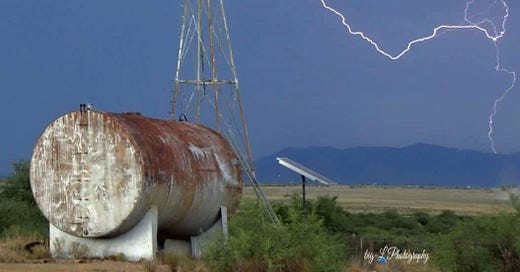




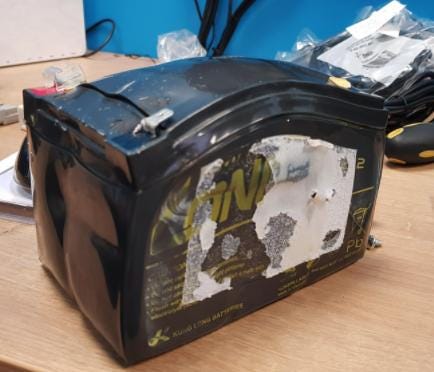
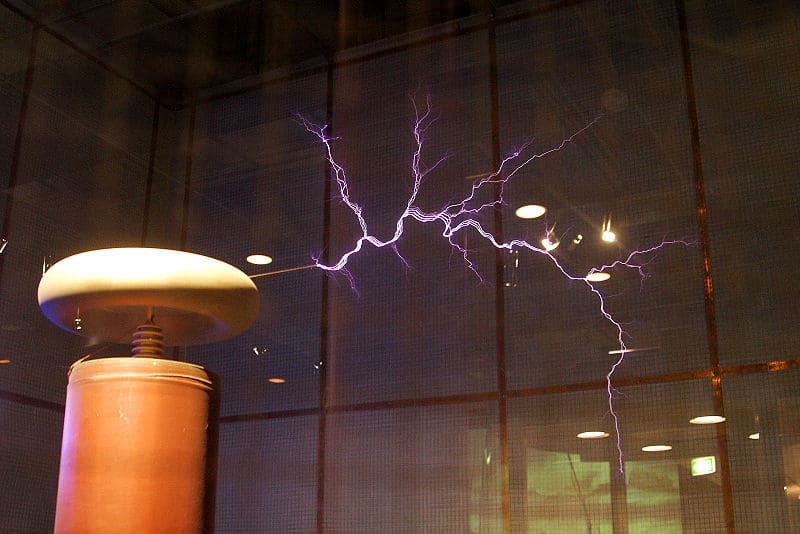
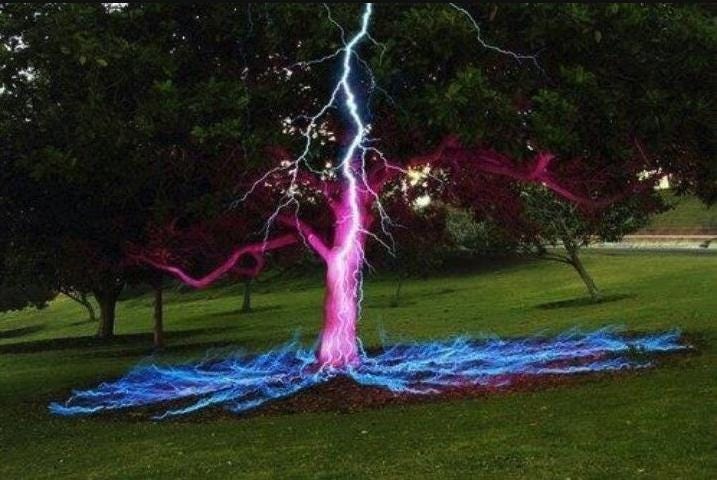

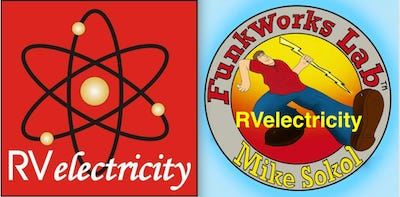
Would the power be protected if shutting off the main breaker if you can’t get to your pedestal to unplug it?
It is not only lightening that can cause a refrigerator or water heater to stop working, I travel with spare control boards, fuses, and other electrical components to keep those items working on the road or in the camp site. It takes very little voltage to piece the junctions of microchips. Sometime as little as four or five volts over their operating voltage can render them useless.